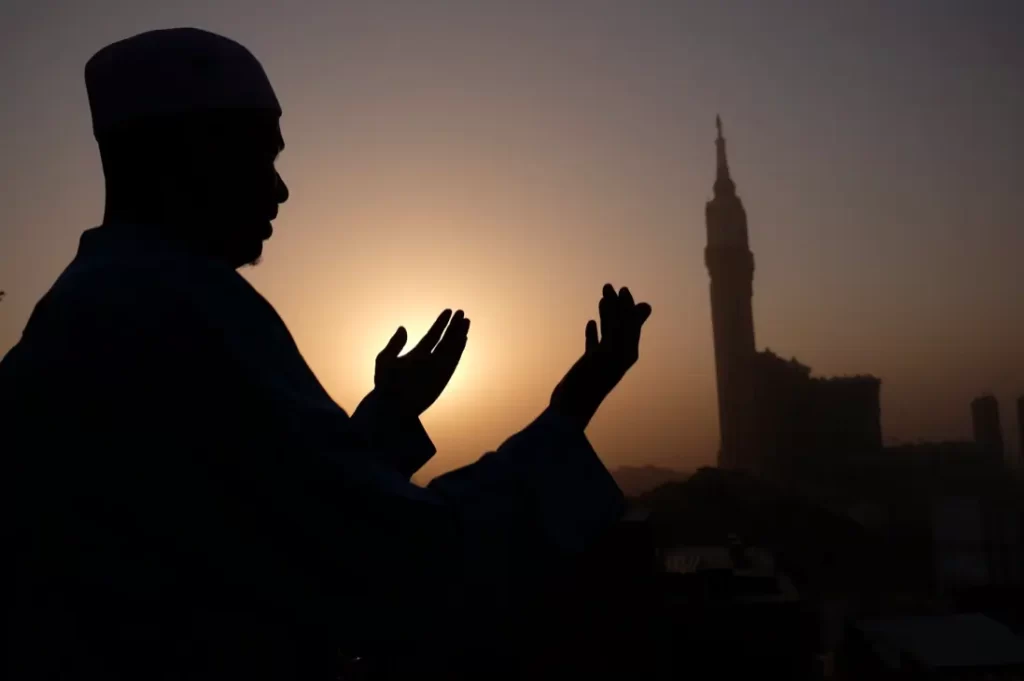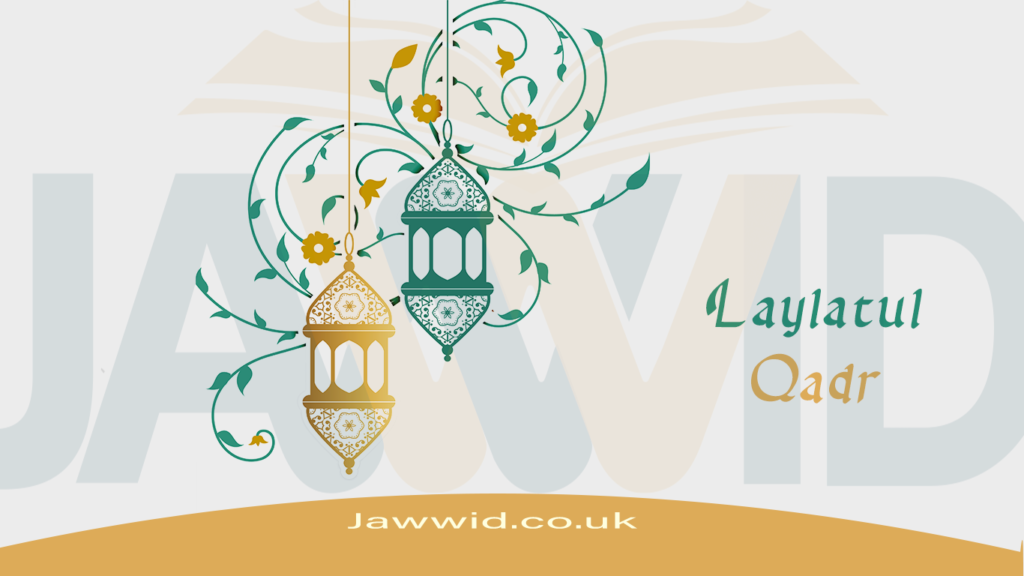All praise is due to Allah, the Almighty, and may Allah’s prayers and peace be upon His Messenger.
I’ve been thinking about the state of our prayer, as well as the prayer of many others. I discovered a link between failure to fully utilise prayer and all of its connotations and the current state of the Islamic nation and the crisis it is experiencing; rather, social and moral crises, psychological and military defeatism, and so on.
Similarly, everyone’s prayer conditions are closely linked to the quality of his circumstances and behaviour. The more one excels at and perfects prayer, the better his circumstances and behaviour will be, and vice versa.
One would wonder, “How is it possible?”
The following are some possible responses to such a question: Prayer is, in fact, a way of life. It is the greatest level of Allâh The Almighty’s Al-‘Ubôdiyyah (genuine submission and servitude).
The ability to pray in full submissiveness is a necessary component of one’s success in this world and the next. The Almighty Allah says, “Successful truly are the believers who perform their Salat (prayer) with solemnity and entire submission.” [23:1-2] Sura Al-Muminûn.

And it was reported that the Prophet Muhammad, peace and blessings of Allah be upon him, said, “Prayer is the best of required things, therefore let him do a lot of it.”
«الصَّلاَةُ خَيْرُ مَوْضُوعٍ فَمَنِ اسْتَطَاعَ أَنْ يَسْتَكْثِرَ فَلْيَسْتَكْثِرَ»
The Prophet, prayers and peace of Allâh be upon him, also said: “And the Prayer is light.” [Reported by Muslim]
«والصَّلاةُ نُورٌ»
It is, indeed, a light for the slave both in this life and in the next.
Let us quickly review the meanings of prayer.
Standing between Allâh The Almighty’s hands, submitting himself, in a perfect state of purity, directing his heart and body towards his Lord, entering the prayer saying Takbeer of his Lord: Allâhu Akbar, Allâh The Almighty is truly the Greatest of All Things, His Command is the Greatest of All Things, then acknowledging his sins and seeking forgiveness for his sins: “O Allâh, put a great distance between me and my sins, as great as the distance You have made between the East and the West. O Allâh, cleanse me of sin as a white garment is cleansed from filth. O Allâh, wash away my sins with snow and water and hail.” [Agreed upon]
«اللَّهُمَّ بَاعِدْ بَيْنِي وَبَيْنَ خَطَايَايَ كَمَا بَاعَدْتَ بَيْنَ الْمَشْرِقِ وَالْمَغْرِبِ اللَّهُمَّ نَقِّنِي مِنْ خَطَايَايَ كَمَا يُنَقَّى الثَّوْبُ الأَبْيَضُ مِنْ الدَّنَسِ اللَّهُمَّ اغْسِلْنِي مِنْ خَطَايَايَ بِالثَّلْجِ وَالْمَاءِ وَالْبَرَدِ»
Do you think the slave will commit a sin on purpose or insist on it if he truly understands the meanings?
Then he will seek refuge from the devil with Allâh The Almighty, and then recite Al-Fâtihah (the Noble Quran’s opening chapter), which is also known as Umm Al-Kitâb (the Mother of the Book) because it combines the meanings of Imân (faith) and Tawheed (monotheism), such as praising Allâh The Almighty, commending Him, glorifying Him, dedicating worship to Him alone, seeking help from Him alone, acknowledging the Hereafter and the King of the Day of Recompense, and asking his Lord for guidance only because it is the way of the Prophets, may Allah exalt their names, and the believers, and away from those who have earned His wrath, nor those who have gone astray among the Jews, Christians, and those who are like them.
The salve then bows for his Lord after finishing his recital, saying: Subhâna Rabbi al-‘Adheem (Glory be to my Lord the Almighty), Isn’t it true that such glorification, bowing and bodily submission, as well as verbal glorification, imply that the slave should submit completely to his Great Lord in all matters, rather than preferring his wishes, whims, and opinions to what Allâh The Almighty has ordained for His slaves?
What an oddity! The slave prays and then comes out of it acknowledging something other than Allâh The Almighty’s religion and pursuing every conceivable route to defy Allâh The Almighty’s commands. I believe he is still a long way from such great meanings.
Contemplate thoughtfully on rising from bowing, praising and glorifying Allâh The Almighty alone saying: “O Allâh, our Lord, praise is Yours, (A praise that) fills the heavens and the earth, and whatever else You please. (You Allâh) are most worthy of praise and majesty, there is none who can withhold what You give, and none may give what You have withheld. And the might of the mighty person cannot benefit him against You.” [Muslim]
اللَّهُمَّ رَبَّنَا لَكَ الْحَمْدُ مِلْءُ السَّمَاوَاتِ وَمِلْءُ الأَرْضِ وَمِلْءُ مَا شِئْتَ مِنْ شَيْءٍ بَعْدُ أَهْلَ الثَّنَاءِ وَالْمَجْدِ لا مَانِعَ لِمَا أَعْطَيْتَ وَلا مُعْطِيَ لِمَا مَنَعْتَ وَلا« يَنْفَعُ ذَا الْجَدِّ مِنْكَ الْجَدُّ»
Then he prostrates himself before Allah, the Almighty. He humbles, submits, yields, and surrenders himself to Allâh The Almighty, placing the noblest parts of his body and the noblest goods he has on the ground for Allâh The Almighty, saying: Subhana Rabbiy al-A’lâ (Glory be to my Lord Most High). If a Muslim had been offered vast sums of money to prostrate to someone other than Allâh The Almighty, he would have declined. There is a form of treatment for arrogance, pride, and haughtiness in prostration. It teaches the slave how to humble and shame himself for Allah, the Almighty, and how to humble and be gracious to His slaves as well.
In his prayer, he affirms the Prophet Muhammad’s prophethood, prays for him, and wishes peace and blessings.
Actually, such prayer and such great meanings imply what prevents one from doing immorality and bad conduct. Allâh The Almighty says: {Verily, As-Salaat (the prayer) prevents from Al-Fahshaa’ (i.e. great sins of every kind, unlawful sexual intercourse, etc.) and Al-Munkar (i.e. disbelief, polytheism, and every kind of evil wicked deed, etc.)} [Al-‘Ankaboot 29:45]

If a person who prays fails to understand such connotations, he will likewise fail to prevent immorality and bad behaviour. As a result, the fundamental error is in the slave’s comprehension, not in the prayers. As a result, the prayer indicates complete submission and servitude.
In conclusion, we come to know that the prayer includes the following:
– Perfect servitude to Allah, the Exalted.
– Praising Allah, the Exalted, with His Names and Attributes.
– Disassociation from disbelief and disbelievers.
– Acknowledgement of sins.
– Reliance on Allah, the Exalted, and humility.
– Proclamation that there is no power and strength save by Allah.
– Compliance with the guidance of the Messenger of Allah sallallaahu `alayhi wa sallam ( may Allah exalt his mention ).
– Submission, obedience, surrender, and humility to Allah Almighty.
– Testifying that Muhammad sallallaahu `alayhi wa sallam ( may Allah exalt his mention ) is the Messenger of Allah.
Isn’t this a way of life for a Muslim, knowing that his Lord and God is the Creator of the universe and the Almighty?
If the person praying comprehends the meaning of all of this, he will emerge from the prayer as a different (better) person with a greater inner light. He will reaffirm his submission to his Lord and will never dare to reject or breach the Divine Revelation, whether through negation, outright defiance of Divine Commands, or distortion. Prayer is a method of life that tries to intellectually, spiritually, behaviorally, morally, and systematically correct a person.
We ask Allâh The Almighty sincerely to make us among the establishers of prayer.



